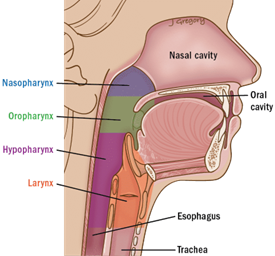Laryngeal and Hypopharyngeal Cancer Treatment in Mumbai

Annually 1 in 100,000 people in Mumbai is diagnosed with laryngeal and hypopharyngeal cancer. With an alarming rise in these cases, statistics highlight the urgency for expert care.
Are you or a loved one facing the challenges of laryngeal and hypopharyngeal cancer? Fret not! You’re not alone. Dr. Devendra Chaukar, a distinguished head and neck oncologist in Mumbai, offers comprehensive laryngeal and hypopharyngeal cancer treatment. Dr. Chaukar’s compassionate care and unmatched surgical precision will guide your path to recovery.
According to recent stats, early diagnosis and advanced treatments can significantly improve outcomes. With a track record of success, Dr. Chaukar develops personalized plans for treating laryngeal and hypopharyngeal cancers.
Trust Dr. Devendra Chaukar’s commitment to excellence in laryngeal and hypopharyngeal cancer treatment in Mumbai. Your path to recovery begins with understanding, innovation, and compassionate care.
For a well-informed perspective, let’s understand the basics of laryngeal and hypopharyngeal cancers.
Overview of Laryngeal and Hypopharyngeal Cancers
Head and neck cancers are classified based on where the tumour originates. There are various types of head and neck cancers, including throat and neck. Abnormal multiplication of cells in the body leads to cancer.
Cancer that originates in the voice box is called laryngeal cancer. Those that develop in the lower throat are known as hypopharyngeal cancers. Throat cancer begins in the lower part of the throat. Given their proximity, both types of cancer are often discussed together.
Ready to take charge of your health? Connect with us for a personalized consultation.
Explore the latest advancements in treating laryngeal and hypopharyngeal cancers. Discover personalized solutions for your medical profile.
Treatment Options for Laryngeal and Hypopharyngeal Cancers
There are three main options for laryngeal and hypopharyngeal cancer treatment in Mumbai. These include surgery, radiation therapy, and medical treatments like chemotherapy, targeted therapy and immunotherapy. One kind or a combination of these treatments might be used to eliminate the tumor.
The treatment approach depends on various factors, including:
- the type and stage of cancer
- patient’s overall health
- preferences for treating illness
- Surgery:
Your best shot at beating laryngeal and hypopharyngeal cancer starts with surgical options. Considered for early-stage cases, surgery aids in removing the cancerous tissue.
Experience matters in the surgical realm, and Dr. Devendra Chaukar boasts a track record of success. Dr. Chaukar employs advanced techniques, ensuring minimal impact on your daily life.
Different Types of Surgeries:
Laryngectomy procedure:
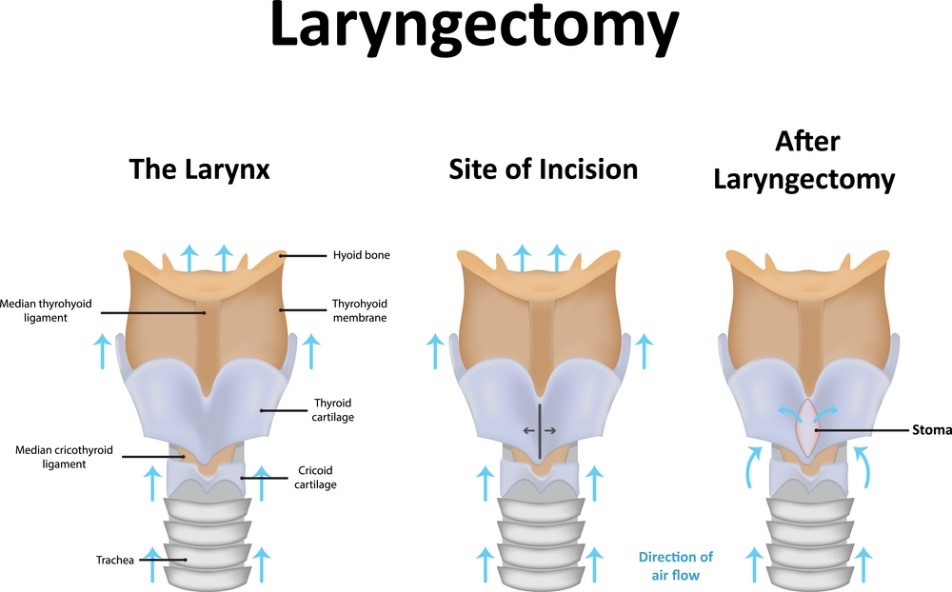
Here are the different laryngectomy types:
- Total Laryngectomy:
- Procedure: Complete removal of the entire larynx.
- Indications: Advanced laryngeal cancer where preservation is not feasible.
- Impact: Loss of natural voice. Creation of a stoma (opening) in the neck for breathing.
- Partial Laryngectomy:
- Procedure: Remove a portion of the larynx while preserving some vocal and breathing functions.
- Indications: Early-stage laryngeal cancer affecting specific areas.
- Impact: Potential preservation of speech and swallowing to varying degrees.
- Supracricoid Laryngectomy:
- Procedure: Removal of the supraglottic region while preserving vocal cords and part of the larynx.
- Indications: Selected cases of advanced cancer preserving voice and swallowing.
- Impact: Better preservation of speech and swallowing compared to total laryngectomy.
- Hemilaryngectomy:
- Procedure: Removal of one side (hemilarynx) of the larynx.
- Indications: Unilateral laryngeal cancer affecting one side.
- Impact: Preserves one vocal cord, offering a chance to maintain speech.
- Cordectomy:
- Procedure: Removal of vocal cords only.
- Indications: Early-stage glottic cancer limited to the vocal cords.
- Impact: Preserves the larynx structure, maintaining breathing and some degree of natural voice.
- Pharyngolaryngectomy:
- Procedure: Removal of both the larynx and a part of the pharynx.
- Indications: Advanced cancer involving both structures.
- Impact: Significant impact on speech and swallowing. Reconstruction may be required.
Pharyngectomy:
It involves the surgical removal of part or all of the pharynx. It targets the hypopharynx region, eliminating cancerous tissue. The specific type of pharyngectomy depends on:
- location of the pharyngeal cancer
- the extent of cancer spread
- surgery’s extent
Neck Dissection:
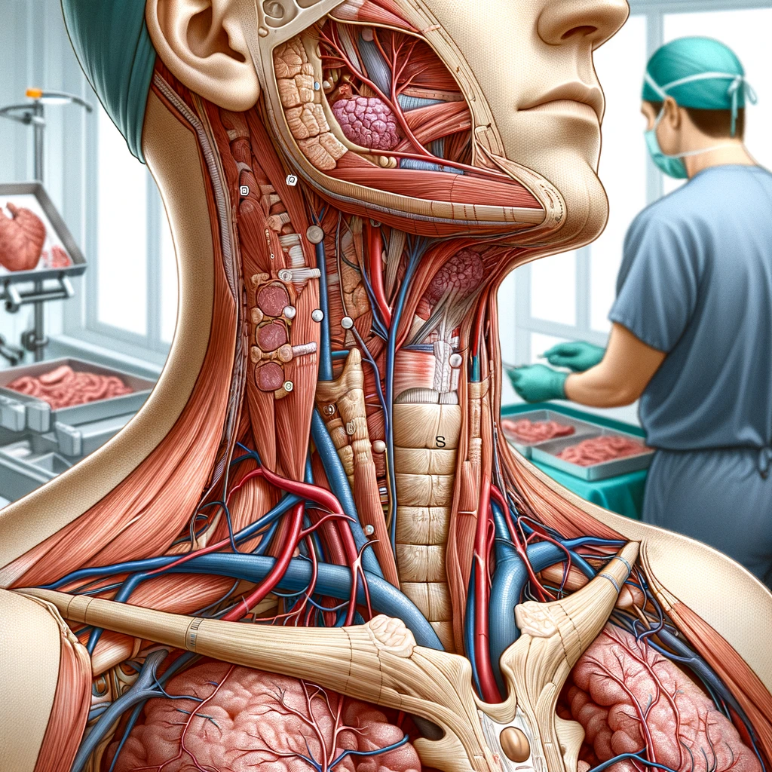
- Selective Neck Dissection:
- Involves removal of specific lymph nodes.
- Aims to prevent cancer from spreading to other parts of the body.
- Radical Neck Dissection:
- Removes lymph nodes, muscles, and other structures.
- Reserved for advanced cases with extensive lymph node involvement.
Dr. Chaukar’s precision ensures thorough removal, reducing the risk of recurrence.
Minimally Invasive Procedures:
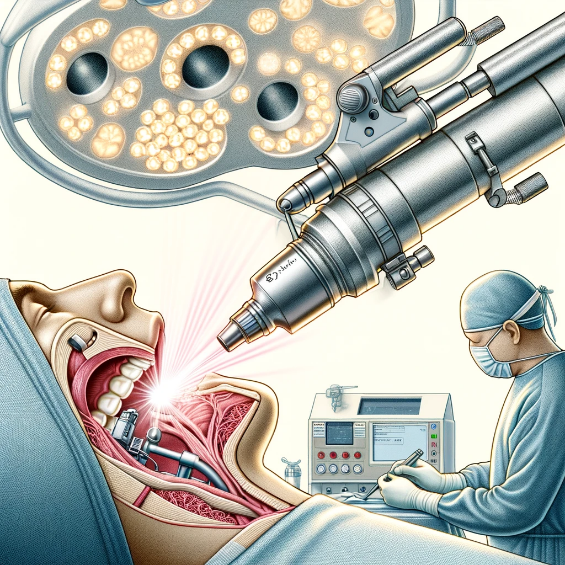
- Transoral Laser Microsurgery (TLM): Uses laser for small tumors, preserving function.
- Robotic Surgery:High precision for intricate surgeries with less scarring.
Dr. Chaukar utilizes robotic assistance for enhanced precision and quicker recovery.
Remember, surgery is just one aspect. Your treatment plan is personalized, considering the stage, health, and preferences.
2. Radiation Therapy:
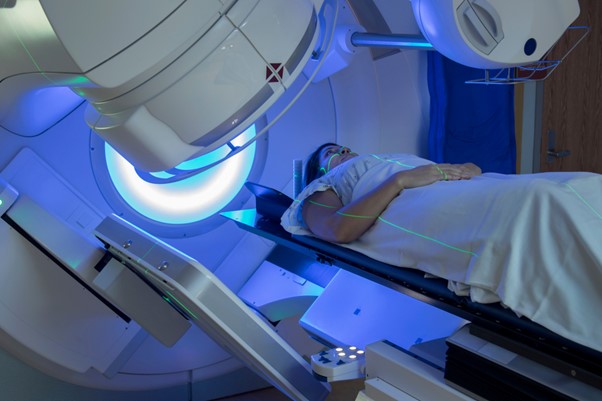
High-energy rays target and eliminate cancer cells. It is ideal for cases where surgery isn’t the primary choice. It is a non-invasive and effective approach for treating laryngeal and hypopharyngeal cancer.
3. Chemotherapy:

Systemic drugs attack cancer cells throughout the body. Often used in combination with other treatments.
4. Targeted Therapy:

These drugs specifically target cancer cells, minimizing damage to healthy ones. It is a more focused approach.
5. Immunotherapy:

Boosts the immune system to fight cancer. It shows promising results in some cases.
Remember, the best option depends on your specific diagnosis. Consult with a specialist like Dr. Devendra Chaukar for personalized guidance on your journey to recovery. Take the time to learn about all your treatment options. Ask questions if anything is unclear. Please talk with your doctor about the reason for each treatment and outcomes.
Don’t Face Cancer Alone. Reach out to Dr. Devendra Chaukar, your trusted guide for laryngeal and hypopharyngeal cancer treatment in Mumbai.
Navigating the cost of laryngeal and hypopharyngeal cancer treatment? Let’s explore it.
Cost of Laryngeal and Hypopharyngeal Cancer Treatment in Mumbai
The laryngeal and hypopharyngeal cancer treatment cost in Mumbai ranges from INR 5,00,000 to INR 15,00,000 or more.
Let’s know the pharyngeal/laryngeal surgery cost and other treatment expenses to make an informed decision.
| Treatment Type | Approximate Cost Range |
Factors Affecting Cost
|
| Surgery |
₹2,50,000 – ₹8,00,000
|
Stage of cancer, hospital facilities, surgeon’s experience
|
| Radiation Therapy |
₹1,50,000 – ₹5,00,000
|
Sessions required, advanced technology usage
|
|
Medical Treatments (Chemotherapy, Targeted Therapy, Immunotherapy) |
₹50,000 – ₹2,00,000 | Drug choices, frequency of sessions, duration |
Keep in mind that these are approximate values. Depending on several factors and personalized treatment plans, costs may vary. These factors include:
- diagnostic tests
- stage of cancer
- specific medications
- type of pharyngeal/laryngeal surgery
- treatment duration
- post-operative care
Understanding the factors affecting costs is crucial. Consult a seasoned oncologist like Dr. Devendra Chaukar to discuss your case. Receive the most suitable and cost-effective options for your laryngeal and hypopharyngeal cancer treatment in Mumbai. Remember, your health is an investment. We’re here to guide you every step of the way.
Fight laryngeal and hypopharyngeal cancer with the best. Book an appointment with Dr. Devendra Chaukar for expert care and support.
Let’s discuss the survival rates for laryngeal and hypopharyngeal cancers. Realistic expectations and informed decisions pave the way for a resilient future.
Survival Rates for Laryngeal and Hypopharyngeal Cancer
Survival rates can vary based on cancer stage and patient’s age. Here’s a breakdown to help you navigate:
|
Cancer Stage |
5-Year Survival Rate
|
Age < 45
|
Age 45-64
|
Age ≥ 65
|
|
Stage I
|
77%
|
85%
|
76%
|
57%
|
|
Stage II
|
63%
|
71%
|
61%
|
42%
|
|
Stage III
|
45%
|
53%
|
43%
|
30%
|
|
Stage IV
|
34%
|
41%
|
32%
|
20%
|
Understanding the survival rates is crucial. It’s important to note that these figures are general estimates. Factors like overall health, treatment response, and individual variations can influence outcomes.
Let’s dive into real-life case studies illuminating the path to success, offering insights and hope.
Case Studies
- Jairam, 58, faced the challenge of laryngeal cancer. With Dr. Devendra’s expertise, Jairam underwent a personalized treatment plan. Today, he speaks clearly. He also shares his inspirational journey to offer hope to others.
- Emma, 42, is a fierce warrior against hypopharyngeal cancer. Dr. Chaukar crafted a tailored treatment regimen, blending surgery and other advanced treatments. Emma’s success story underscores the importance of early detection and a dedicated medical team.
- Sanjeev, 64, navigated laryngeal cancer with Dr. Devendra Chaukar’s guidance. Through a combination of surgery and post-treatment support, Sanjeev regained his voice. His story exemplifies the personalized care and expertise offered by Dr. Chaukar.
Remember, these cases are snapshots, not predictions. Your journey is personal. Lessons from these stories might light the way.
Book an appointment with Dr. Devendra Chaukar for advanced laryngeal cancer treatment in Mumbai.
Learn how recognizing symptoms early and adopting preventive measures can be game-changers in combating laryngeal and hypopharyngeal cancers.
Importance of Early Detection & Prevention
Timely detection is crucial, especially for laryngeal and hypopharyngeal cancers. Early detection significantly improves treatment success rates and patient outcomes. Early detection through regular screenings, symptom awareness, and prompt medical attention can increase the chances of successful cancer treatment. Remember, early detection opens doors to more treatment options. It also improves the likelihood of a successful recovery.
Prevention is vital in reducing the risk of laryngeal and hypopharyngeal cancers. Ensuring a healthy lifestyle, avoiding tobacco and excessive drinking, and regular check-ups are effective ways to stay healthy. By incorporating preventive measures into your daily routine, you can control your health and reduce cancer risk. Prioritize your well-being by remaining vigilant and proactive. Your health is your greatest asset.
Choose excellence in cancer care. Schedule your consultation with Dr. Devendra Chaukar for comprehensive treatment.
Got questions? Find concise answers to common queries about laryngeal and hypopharyngeal cancers. Empower yourself with knowledge for informed decision-making.
Frequently Asked Questions
1. Is surgery the only option for treatment?
No. Treatment plans vary. Dr. Chaukar explores all viable options depending on the stage and individual factors. These include surgery, radiation, and chemotherapy.
2. How long does the recovery process take?
Recovery timelines differ. Dr. Chaukar emphasizes personalized care plans. He ensures patients experience a smoother and faster recovery based on their circumstances.
3. Are there support services for patients and their families?
Comprehensive support services are available for patients and families throughout the treatment journey. Emotional support, counselling, and resources contribute to a holistic approach.
4. Is post-treatment follow-up necessary?
Regular follow-ups are crucial for monitoring progress and addressing potential concerns. Dr. Chaukar ensures a structured post-treatment plan for continued care and well-being.
5. Can these cancers recur after treatment?
While recurrence is possible, diligent follow-ups and post-treatment care significantly minimize the risk. Dr. Chaukar’s vigilant approach ensures ongoing surveillance for optimal outcomes.
6. How can I schedule a consultation with Dr. Devendra Chaukar?
Booking a consultation is easy. Reach out to our team, who will guide you through the process, ensuring timely access to expert advice.
7. What sets Dr. Chaukar apart from other oncologists in Mumbai?
Dr. Chaukar’s expertise, personalized approach, and commitment to patient well-being make him a leading head and neck oncologist in Mumbai.

